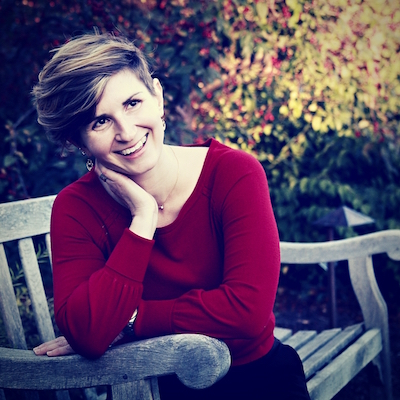
Sarah K. Stephens
Contributor
When I first started lecturing in Human Development and Family Studies at Penn State, I would literally shake before each class.
As I’d try to calmly put on my lapel mic and cue up my slides of content my hands would betray just how nervous I was to speak in front of 200 undergraduate students, many of whom I was only 4 or 5 years their senior.
I’ve been teaching at Penn State for over a decade now, and I’ll admit it: I still get those butterflies of nervousness before each class, although my hands are rather steady at this point. Early in my career I thought my nerves came from fear of being judged by my students, and I’m sure that was part of it.
Now, ten years in and with a decently thick skin developed, I recognize that my nervousness isn’t solely derived from issues of self-presentation. Rather, I’m nervous because I realize the responsibility that is on my shoulders—that rests on the shoulders of every teacher the world over.
That responsibility characterizes us as teachers: we are defined by our ability to share knowledge with our students that is, at the very least, accurate, and at the most, inspiring. In my classes, we cover topics that I feel are essential to the betterment of humankind: child abuse prevention, the origins of mental illness, and the developmental needs of children, to name just a few I feel a deep passion for. I care so much about conveying this content to my students that I get nervous before I embark on the 75 minutes of lecture I have twice a week with my classes. I am nervous because I know, with each class, I have a chance to convince them that this information is important and essential.
And I don’t want to waste that opportunity.
When I get it right—when students are engaged and I am thrumming along with the examples and the questions and the active discussion—that tiny phrase of “Let’s end there for today” unleashes a firestorm in my heart.
At the end of a good lecture, I feel incredibly alive.
I entered the field of developmental psychology because I was certain humankind could do better. We’re failing in a lot of areas, too numerous to name here, and I felt strongly (and still do) that developmental science holds part of the key to strengthening humanity’s positive imprint on this world. In my classes, I have the chance to share this passion with my students, in the hopes that it will prove contagious.

One of the scariest but also most enticing aspects of teaching is that each class is a fresh start. No matter how well the last lecture went–or how poorly–calling my class to attention essentially hits the reset button. I now must prove, in the next 75 minutes, that the information I am providing is worthwhile of my students’ time. The fabulous discussion we had last class doesn’t count for today’s experience, and the stumbling I did over some content last week also doesn’t bear mentioning. As a teacher, you are called to be in the moment, an active presence with your students as you walk the path of knowledge together.
Essentially each lecture is a reminder to me to practice that well-worn mantra: Be Present.
The way I interpret that concept within my classroom is to remain engaged and empathetic to my students. I try to recall with each component of information what it felt like when I first encountered it. What about this idea or research finding captured my excitement? Which aspects of this study or prevention program inspired and changed my perceptions of the world? If I can identify the initial sparks in my own learning, I feel I can be fully engaged with my students and likewise incite similar inspiration in them.
Now granted, there are topics that I struggle with myself—not for lack of importance (if information wasn’t important, we wouldn’t be covering it), but because it lacks a certain je ne sais quois. Some topics just doesn’t beguile me (here’s looking at you, Piaget). But even for those topics, or perhaps even moreso, I push myself to find some origin of interest in myself that I can communicate to my students. Because my job is to, yes, present clear and accurate content, but it is also to educate my students about why what we are learning matters.
This is why, when I finish a lecture where I feel I accomplished just that—where I made my students care about what they were learning—I feel a rush of endorphins akin to the feeling I have after finishing a 6- or 7-mile run.
Except it’s a teacher’s high, rather than a runner’s high.
And just like running, where I take each workout one mile at a time, I take my 15 weeks with my students one lecture at a time, striving to give them the best information in the clearest and most compelling format. But above all, as my students delve further into the world of developmental science, I work to be there alongside them, re-discovering it myself with each lecture.
It is when I am fully present with my students on their journey of discovery that I feel most alive myself.
More About Sarah K. Stephens: Sarah K. Stephens earned her Doctorate in Developmental Psychology and teaches a variety of human development courses as a lecturer at Penn State University. Although Fall and Spring find her in the classroom, she remains a writer year-round. Her short stories have appeared in Five on the Fifth, The Voices Project, The Indianola Review, and the Manawaker Studio’s Flash Fiction Podcast. Her debut novel, A Flash of Red, will be released in Winter 2016 by Pandamoon Publishing. Follow her on Twitter or Facebook and read more of her writing on her blog.






